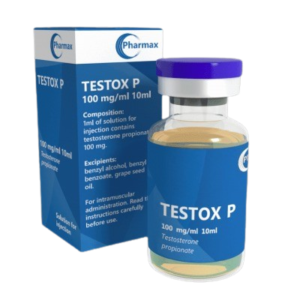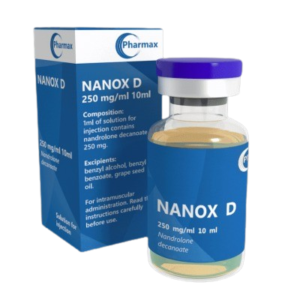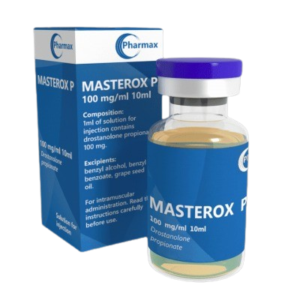Anastrozole: A Comprehensive Guide to Its Usage, Benefits, and Side Effects
I. Introduction to Anastrozole
A. Overview of Anastrozole
Anastrozole belongs to a class of medications known as aromatase inhibitors, which are primarily used to treat breast cancer. It works by reducing the production of estrogen in the body, thereby inhibiting the growth of estrogen-dependent tumors.
B. Medical Uses and Approval
Anastrozole is approved for various medical uses, including the treatment of early-stage or advanced breast cancer in postmenopausal women. It may also be used as an adjuvant therapy or for the prevention of breast cancer recurrence.
C. Mechanism of Action
Anastrozole works by inhibiting the enzyme aromatase, which is responsible for converting androgens into estrogens. By blocking this enzyme, Anastrozole reduces the levels of estrogen in the body, which helps in slowing down the growth of estrogen-dependent tumors.
II. Understanding Anastrozole
A. Anastrozole vs. Tamoxifen: Key Differences
While both Anastrozole and Tamoxifen are used in the treatment of breast cancer, they work in different ways. Tamoxifen is a selective estrogen receptor modulator (SERM) that blocks the estrogen receptors in breast tissue, whereas Anastrozole directly inhibits the production of estrogen. Your healthcare provider will determine which medication is most suitable for your specific condition.
B. Anastrozole 1mg Tablets: What You Need to Know
Anastrozole is available in the form of 1mg tablets for oral administration. It is usually taken once a day, with or without food. It is important to follow your doctor’s instructions regarding the dosage and duration of treatment.
C. Anastrozole for Men and Women: Distinct Applications
While Anastrozole is primarily used in the treatment of breast cancer in postmenopausal women, it also has applications in men. In men, Anastrozole is used to treat conditions such as gynecomastia (enlarged breasts) and to improve symptoms associated with low testosterone levels.
III. Anastrozole in Bodybuilding
A. The Role of Anastrozole in Bodybuilding
Anastrozole is often used by bodybuilders who are taking anabolic steroids. Anabolic steroids can increase the levels of estrogen in the body, leading to side effects such as gynecomastia. By inhibiting the production of estrogen, Anastrozole helps prevent these estrogen-related side effects.
B. Anastrozole Dosage for Bodybuilders
The dosage of Anastrozole for bodybuilders can vary depending on the specific steroid cycle and individual needs. It is important to work with a knowledgeable healthcare professional who can provide guidance on the appropriate dosage to control estrogen levels effectively.
C. Anastrozole Half-Life: How Long It Stays in Your System
The half-life of Anastrozole is approximately 46 hours. This means that it takes about 46 hours for half of the medication to be eliminated from your system. However, it is important to note that individual factors, such as metabolism and other medications being taken, can influence how long Anastrozole stays in your system.
IV. Anastrozole Usage and Dosage
A. How to Take Anastrozole
Anastrozole is usually taken orally as directed by your healthcare provider. It is important to take it at the same time each day to maintain consistent levels of the medication in your body. Follow the instructions provided by your doctor or pharmacist regarding the dosage and duration of treatment.
B. Determining the Right Dosage
The dosage of Anastrozole will vary depending on the specific condition being treated. Your healthcare provider will consider factors such as the stage of breast cancer, your overall health, and other medications you may be taking. It is important to communicate any changes in your condition or any concerns you may have to your healthcare provider.
C. Adjusting Dosage Based on Individual Needs
In some cases, your doctor may need to adjust the dosage of Anastrozole based on your individual needs and response to the medication. Regular follow-up appointments will allow your doctor to monitor your progress and make any necessary adjustments to ensure optimal treatment outcomes.
V. Side Effects of Anastrozole
A. Common Side Effects
Like any medication, Anastrozole may cause certain side effects. Common side effects of Anastrozole may include hot flashes, joint pain, fatigue, nausea, and headaches. These side effects are generally mild and can be managed with the guidance of your healthcare provider.
B. Rare but Serious Side Effects
Although rare, there are certain serious side effects associated with Anastrozole that require immediate medical attention. These may include severe allergic reactions, bone fractures, heart problems, and liver damage. It is important to seek medical help if you experience any unusual symptoms or severe side effects while taking Anastrozole.
C. Anastrozole Side Effects in Females
In female patients, Anastrozole can lead to a decrease in estrogen levels, which may cause symptoms such as vaginal dryness, decreased libido, and mood changes. It is essential to discuss any concerns or symptoms with your healthcare provider for appropriate management.
VI. Precautions and Interactions
A. Foods to Avoid When Taking Anastrozole
While there are no specific dietary restrictions when taking Anastrozole, it is advisable to follow a healthy and balanced diet. Some studies suggest that cruciferous vegetables like broccoli, cabbage, and cauliflower may have potential anti-cancer properties, but their impact on Anastrozole’s effectiveness is not well-established.
B. Drug Interactions to Be Aware Of
Anastrozole may interact with certain medications, including hormone replacement therapy, estrogen-containing products, and some antifungal medications. It is crucial to inform your healthcare provider about all the medications, supplements, and herbal products you are taking to avoid any potential interactions.
C. Anastrozole and Pregnancy
Anastrozole is not recommended for use during pregnancy. It may cause harm to the developing fetus. If you become pregnant or are planning to become pregnant, it is important to discuss alternative treatment options with your doctor.
VII. Buying Anastrozole
A. How to Buy Anastrozole Safely
When purchasing Anastrozole, it is crucial to obtain it from reputable sources, such as licensed pharmacies or healthcare providers. Avoid purchasing medications from unverified online sources or unreliable sellers to ensure the quality and authenticity of the product.
B. Anastrozole for Sale: Identifying Reputable Sources
To identify reputable sources for Anastrozole, consult with your healthcare provider or pharmacist. They can provide guidance on licensed pharmacies or authorized distributors where you can obtain genuine Anastrozole.
C. Anastrozole Price: Comparing Costs and Finding the Best Deals
The cost of Anastrozole can vary depending on the brand, dosage, and location. It is advisable to compare prices from different pharmacies or online platforms, taking into consideration factors such as discounts, insurance coverage, and availability of generic alternatives.
VIII. Anastrozole Cost and Insurance Coverage
A. Understanding the Costs Associated with Anastrozole
The cost of Anastrozole can include the price of the medication itself, as well as any additional fees or co-payments associated with consultations and prescriptions. It is recommended to consult with your healthcare provider and insurance provider to understand the specific costs involved in your case.
B. Insurance Coverage for Anastrozole Prescriptions
Anastrozole is typically covered by insurance for the approved indications, such as the treatment of breast cancer. However, coverage may vary depending on your insurance plan and specific circumstances. It is advisable to contact your insurance provider to understand the coverage details and any out-of-pocket expenses you may incur.
C. Financial Assistance Options for Anastrozole
In cases where the cost of Anastrozole poses a financial burden, there may be financial assistance programs available. These programs can help eligible individuals access the medication at reduced or no cost. Consult with your healthcare provider for information on potential financial assistance options or explore resources provided by pharmaceutical companies or charitable organizations.
IX. Frequently Asked Questions
A. Is Anastrozole a Steroid?
No, Anastrozole is not a steroid. It is an aromatase inhibitor used in the treatment of hormone receptor-positive breast cancer and has applications in bodybuilding to prevent estrogen-related side effects caused by anabolic steroid use.
B. Can I Drink Alcohol While Taking Anastrozole?
While there are no specific contraindications regarding alcohol consumption while taking Anastrozole, it is advisable to consult with your healthcare provider. Alcohol intake in moderation is generally considered acceptable, but excessive alcohol consumption may have negative effects on overall health and treatment outcomes.
C. How Long Do I Need to Take Anastrozole?
The duration of Anastrozole treatment varies depending on individual factors and the specific condition being treated. It is typically prescribed for several years in breast cancer cases. Follow your doctor’s instructions regarding the duration of treatment and attend regular follow-up appointments for monitoring.
X. Anastrozole: Case Studies and Research
A. Clinical Trials and Efficacy
Anastrozole has been the subject of numerous clinical trials, demonstrating its effectiveness in treating hormone receptor-positive breast cancer. Studies have shown that Anastrozole significantly reduces the risk of recurrence in postmenopausal women compared to other treatments, such as Tamoxifen. Research highlights its role in improving overall survival rates and reducing the size of tumors in early-stage breast cancer.
B. Long-Term Studies and Outcomes
Long-term studies have provided valuable insights into the extended use of Anastrozole. Research indicates that continuing Anastrozole therapy for extended periods, beyond the initial treatment phase, can further reduce the risk of cancer recurrence. However, long-term use requires careful monitoring for potential side effects and adjustments based on individual responses.
C. Emerging Research and Future Directions
Ongoing research continues to explore the full potential of Anastrozole. New studies are investigating its effectiveness in combination with other therapies, its role in different types of breast cancer, and potential benefits for other hormone-related conditions. Future research may provide additional insights into optimizing treatment protocols and enhancing patient outcomes.
XI. Anastrozole and Lifestyle Adjustments
A. Diet and NutritionMaintaining a balanced diet while on Anastrozole can support overall health and treatment efficacy. Including foods rich in antioxidants, vitamins, and minerals can help manage side effects and support your body’s response to treatment. Consulting a nutritionist can provide personalized dietary recommendations to complement your treatment plan.
B. Exercise and Physical Activity
Regular physical activity is beneficial for managing side effects such as joint pain and fatigue associated with Anastrozole. Engaging in moderate exercise, such as walking or swimming, can improve overall well-being and enhance treatment outcomes. Always discuss with your healthcare provider before starting any new exercise regimen.
C. Mental Health and Support
The emotional and psychological impact of breast cancer treatment can be significant. Support groups, counseling, and therapy can help manage stress and improve mental health. Engaging with a support network or mental health professional can provide valuable coping strategies and emotional support throughout your treatment journey.
XII. Patient Experiences and Testimonials
A. Personal Stories and ReviewsHearing from other patients who have used Anastrozole can provide valuable insights and reassurance. Personal testimonials often highlight experiences with managing side effects, achieving treatment goals, and overall satisfaction with the medication. Sharing and learning from others’ experiences can offer practical advice and support.
B. Expert Opinions and Recommendations
Healthcare professionals, including oncologists and pharmacists, offer expert opinions on the use of Anastrozole. Their insights into the medication’s efficacy, safety, and management of side effects can guide patients in making informed decisions about their treatment options.
C. Frequently Asked Questions by Patients
Patients often have specific questions about Anastrozole, including concerns about interactions, side effects, and effectiveness. Addressing these frequently asked questions can provide clarity and help patients better understand their treatment plan.
XIII. Anastrozole in Different Populations
A. Anastrozole in Postmenopausal Women
For postmenopausal women, Anastrozole is a primary treatment option for hormone receptor-positive breast cancer. Its ability to reduce estrogen levels and prevent cancer recurrence makes it a vital part of the treatment regimen. Understanding how Anastrozole fits into the broader context of breast cancer management is essential for optimal care.
B. Anastrozole in Men
Although less common, Anastrozole can be prescribed to men for specific conditions such as gynecomastia or low testosterone levels. Its effects on estrogen levels in men can help address these issues effectively. Consulting with a healthcare provider is crucial for proper diagnosis and treatment planning.
C. Special Considerations for Other Groups
Certain populations, including younger women and individuals with other health conditions, may have unique considerations when using Anastrozole. Tailoring treatment plans to address these specific needs ensures the best possible outcomes and minimizes potential risks.
XIV. Conclusion
In summary, Anastrozole is a powerful medication used primarily for treating hormone receptor-positive breast cancer and managing estrogen-related side effects in bodybuilding. By inhibiting estrogen production, Anastrozole plays a crucial role in slowing tumor growth and preventing cancer recurrence. Understanding its usage, benefits, and potential side effects is vital for making informed decisions about treatment.
Open communication with healthcare providers, adherence to prescribed dosages, and regular monitoring are key to achieving optimal results with Anastrozole. Staying informed about new research and treatment guidelines can also enhance the effectiveness of your treatment plan.
Always consult with your healthcare provider for personalized advice and recommendations tailored to your individual needs. This guide aims to provide a comprehensive overview, but each case is unique, and professional guidance is essential for the best possible care.
FAQs
1. Is Anastrozole a steroid?No, Anastrozole is not a steroid. It is an aromatase inhibitor used in the treatment of hormone receptor-positive breast cancer and has applications in bodybuilding to prevent estrogen-related side effects caused by anabolic steroid use.
2. Can I drink alcohol while taking Anastrozole?
While there are no specific contraindications regarding alcohol consumption while taking Anastrozole, it is advisable to consult with your healthcare provider. Alcohol intake in moderation is generally considered acceptable, but excessive alcohol consumption may have negative effects on overall health and treatment outcomes.
3. How long do I need to take Anastrozole?
The duration of Anastrozole treatment varies depending on individual factors and the specific condition being treated. It is typically prescribed for several years in breast cancer cases. Follow your doctor’s instructions regarding the duration of treatment and attend regular follow-up appointments for monitoring.
4. Can I stop taking Anastrozole if side effects are too severe?
It is essential to consult with your healthcare provider before making any changes to your medication regimen. If you experience severe side effects or have concerns, discuss them with your doctor. They can assess the situation and determine the best course of action, which may include adjusting the dosage or exploring alternative treatment options.
5. Are there any natural alternatives to Anastrozole?
While there are no natural alternatives that replicate the exact mechanism of Anastrozole, certain dietary and lifestyle modifications may help support hormonal balance. These include maintaining a healthy weight, regular exercise, and consuming a balanced diet rich in fruits, vegetables, and whole grains. It is important to discuss any complementary or alternative approaches with your healthcare provider.







Reviews
There are no reviews yet.